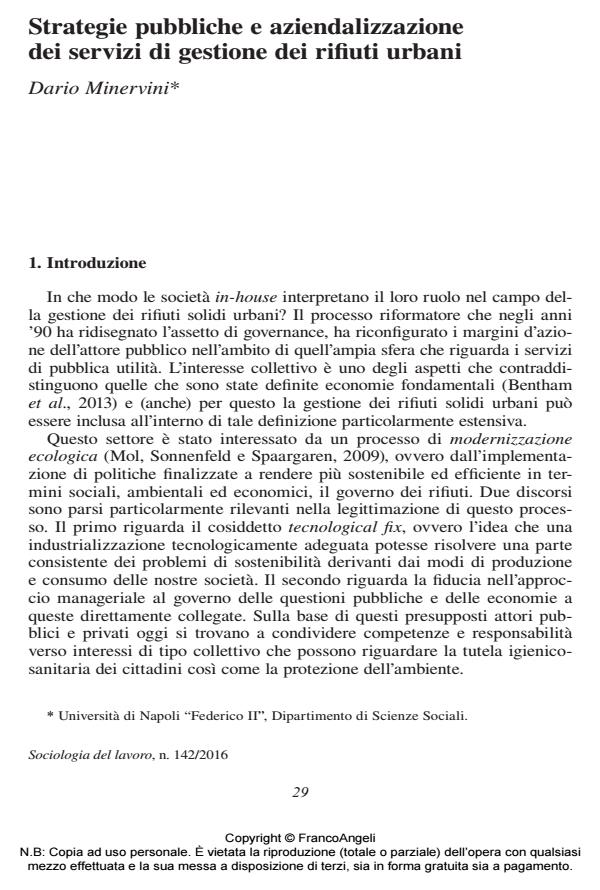Public strategies facing corporatization of waste management
Journal title SOCIOLOGIA DEL LAVORO
Author/s Dario Minervini
Publishing Year 2016 Issue 2016/142
Language Italian Pages 20 P. 29-48 File size 129 KB
DOI 10.3280/SL2016-142002
DOI is like a bar code for intellectual property: to have more infomation
click here
Below, you can see the article first page
If you want to buy this article in PDF format, you can do it, following the instructions to buy download credits

FrancoAngeli is member of Publishers International Linking Association, Inc (PILA), a not-for-profit association which run the CrossRef service enabling links to and from online scholarly content.
Urban waste management can be considered actually a foundational economy field. Indeed it consists in a "taken for granted" services system related with probably the most "material" dimension of urban welfare. Both public and private actors rely on a social licensed mandate in the name of "common values" and social returns (public health, environmental protection). Since the Nineties a relevant part of the waste management chain was involved in a corporatization and liberalization process. This paper focuses on the role of in-house municipal companies and on their relationships with the other companies of the field. In the conclusions strategies of the public companies trying to maintain control of their influence sphere in a neo-liberal context are pointed out.
Keywords: In-house procurement, urban waste, public, private, corporatization, competition
- European Systems for the Management of Packagings and Packaging Wastes Valentina Di Marcantonio, in SSRN Electronic Journal /2013
DOI: 10.2139/ssrn.2330319
Dario Minervini, Strategie pubbliche e aziendalizzazione dei servizi di gestione dei rifiuti urbani in "SOCIOLOGIA DEL LAVORO " 142/2016, pp 29-48, DOI: 10.3280/SL2016-142002